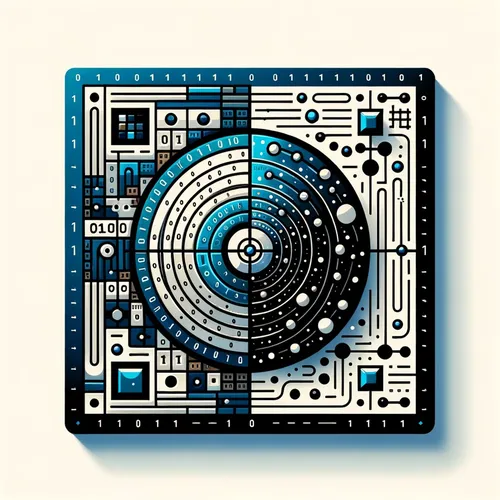Quantum Computing Unleashed: Molecules, Diamonds, and the Race to Outpace Rivals
- Author
- Quiet. Please
- Published
- Thu 23 Jan 2025
- Episode Link
- https://www.spreaker.com/episode/quantum-computing-unleashed-molecules-diamonds-and-the-race-to-outpace-rivals--63859520
This is your Quantum Bits: Beginner's Guide podcast.
Hey there, I'm Leo, your go-to expert for all things Quantum Computing. Let's dive right into the latest breakthroughs that are making quantum computers easier to use.
Just a few days ago, a team of Harvard scientists led by Kang-Kuen Ni made a significant leap in quantum computing by successfully trapping and manipulating ultra-cold polar molecules as qubits. This feat, published in Nature, opens new possibilities for harnessing the complexity of molecular structures for future applications. By using optical tweezers to control these molecules, the team managed to entangle two molecules, creating a quantum state known as a two-qubit Bell state with 94% accuracy. This breakthrough could lead to the development of molecular quantum computers, which could offer unprecedented speeds and capabilities.
But what does this mean for quantum programming? Well, advancements like these are crucial for making quantum computers more practical and user-friendly. For instance, Marcus Doherty, Co-Founder and Chief Scientific Officer of Quantum Brilliance, predicts that 2025 will see quantum computers leave labs and deploy into real-world networks and data centers. This transition will be a real test for quantum computing companies, pushing them to deliver on their promises.
One of the key trends this year is the rise of diamond technology, which allows for room-temperature quantum computing without the need for large mainframes or absolute zero temperatures. This technology enables smaller, portable quantum devices that can be used in various locations and environments, bringing us closer to scaling quantum devices.
Moreover, the industry is moving towards hybridized and parallelized quantum computing, with partnerships like the one between Quantum Brilliance and Oak Ridge National Laboratory yielding significant advancements. This hybridization will inspire new approaches to classical algorithms, leading to the development of superior quantum-inspired classical algorithms.
In terms of practical applications, quantum optimization is emerging as a killer use case for quantum computing, becoming an operational necessity for businesses looking for novel strategies to maintain competitiveness. Enterprises leveraging annealing quantum computing to conquer complex optimization challenges can expect to outpace rivals that remain stuck using outdated legacy solutions.
So, what's the takeaway? The latest quantum programming breakthroughs are making quantum computers easier to use by advancing error mitigation and correction, integrating Quantum Processing Units (QPUs) with classical systems, and developing new algorithms tailored for specific problem classes. With these advancements, quantum computing is set to revolutionize fields like AI, optimization, and materials science, unlocking unprecedented solutions and discoveries. Stay tuned, folks, 2025 is shaping up to be a pivotal year for quantum computing.
For more http://www.quietplease.ai
Get the best deals https://amzn.to/3ODvOta
